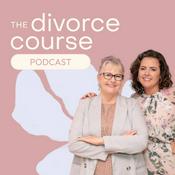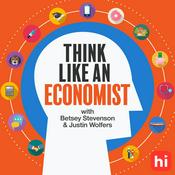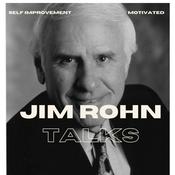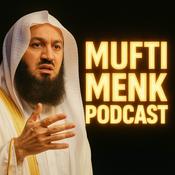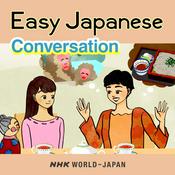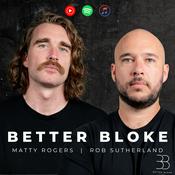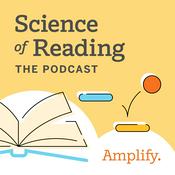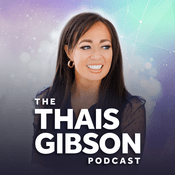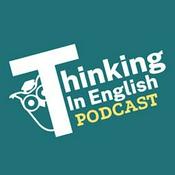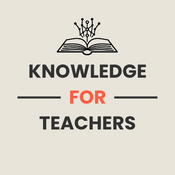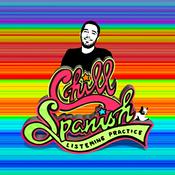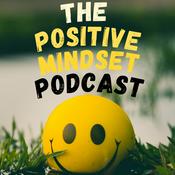102 episodes
- Have you ever had a reaction to your partner that felt huge?
Like a ten out of ten response to something small?
You are crying over coffee.
They are confused.
You are both thinking, what just happened?
It makes sense that this feels confusing. Most couples are not fighting about the present moment. They are reacting from something older.
In this episode, I explore how your wounded child shows up in adult relationships, why conflict can feel bigger than the situation and how attachment patterns keep couples stuck in the same loop.
This is not about blame. It is about understanding the pattern.
In this episode I cover:
• Why small arguments turn into big emotional reactions
• How childhood needs for safety, soothing and validation shape adult conflict
• What anxious and avoidant attachment can look like in a fight
• Why you get louder and they shut down
• What secure conflict actually feels like
• Practical steps to pause, name your needs and respond rather than react
You are not broken for reacting strongly. There is nothing wrong with you for feeling that. Often, if it feels hysterical, it is historical.
The goal is not to erase your wounds. The goal is to make sure they are not driving your adult intimacy.
Resources:
If you want more support, download the Conflict Guide and start noticing your patterns with compassion and clarity.
https://marievakakis.com.au/why-couples-keep-arguing-and-what-its-really-aboutand-what-its-really-about/
ENROL NOW Relationship New Year RESET 2026
https://marievakakis.com.au/relationship-new-year-reset-2026/
Connect with Marie
https://thetherapyhub.com.au/
https://marievakakis.com.au/
https://www.instagram.com/marievakakis/
Submit a question to the Podcast
https://forms.gle/nvNQyw9gJXMNnveY6 - If you keep having the same argument with your partner, it might not be about the topic at all. Often, it is not about the dishes, the plans for the weekend, or who forgot to call back. How you fight, well, that could be based on your attachment style. In this episode, I’ll explore how anxious and avoidant attachment styles show up during conflict and why they can create painful cycles that feel impossible to escape.I’ll share what I see as a couples therapist and what you can do about it.
Conflict with a partner activates something deep in our nervous system. Suddenly, we are not calm, rational adults. We are reacting to old attachment wounds. One person escalates, the other withdraws, and before long, the original issue is forgotten while the emotional storm takes over.
In this episode I’ll explain how these patterns form, why they make sense from an attachment perspective, and most importantly, how couples can begin to break the cycle.
In this episode you will learn:
• Why couples repeat the same arguments over and over
• How anxious and avoidant attachment styles trigger each other
• What happens in the nervous system during relationship conflict
• Why silence can feel dangerous for one partner and safe for the other
• The difference between taking a break and stonewalling
• How to communicate needs clearly during heated moments
• Practical scripts to help repair after conflict
• Why repair is more important than getting it right
Resources mentioned:
Working with conflict course: https://marievakakis.com.au/working-with-conflict-in-couples-therapy/
Download guide: https://marievakakis.com.au/why-couples-keep-arguing-and-what-its-really-aboutand-what-its-really-about/
Couples therapy sessions at The Therapy Hub
If this episode resonates, share it with your partner or a friend and start the conversation.
ENROL NOW Relationship New Year RESET 2026
https://marievakakis.com.au/relationship-new-year-reset-2026/
Connect with Marie
https://thetherapyhub.com.au/
https://marievakakis.com.au/
https://www.instagram.com/marievakakis/
Submit a question to the Podcast
https://forms.gle/nvNQyw9gJXMNnveY6 - So many couples say the same thing when they come to therapy. We probably should have talked about this earlier. Not because of one big issue, but because of all the small conversations that got pushed aside.
In this episode, I’m sharing five relationship topics that come up again and again in my therapy sessions. Things like how to talk about personal goals, navigating money and shared responsibilities, defining sex and intimacy, managing expectations as life changes, and naming the fears that quietly shape how we show up with each other.
What we cover
The conversations couples often avoid that lead to disconnection
What to talk about before starting study or changing routines
Why money triggers old patterns, and how to talk about them together
How to define sex and intimacy in a way that works for both of you
Expectations around parenting, roles and who does what
How fear shows up in silence, frustration or resentment
Mentioned in this episode
Relationship Refresh Workshop (on demand)
Sex and Intimacy Conversation Starter Guide
Therapy sessions at The Therapy Hub
ENROL NOW Relationship New Year RESET 2026
https://marievakakis.com.au/relationship-new-year-reset-2026/
Connect with Marie
https://thetherapyhub.com.au/
https://marievakakis.com.au/
https://www.instagram.com/marievakakis/
Submit a question to the Podcast
https://forms.gle/nvNQyw9gJXMNnveY6 - Sharing good news with your partner should feel connecting. Yet for many people, moments of success can quickly turn into hurt or tension when the response feels flat, awkward, or dismissive.
In this episode, I respond to a listener question about getting a promotion and feeling unsupported by their partner. I unpack three common reasons this happens and what is often going on underneath the surface.
This is not about someone being uncaring or selfish. It is about different emotional languages, family histories, and unspoken fears colliding in the same moment.
What this episode explores
Why celebrations matter differently to different people
How family culture shapes responses to success
Why promotions can trigger shame, fear, or disconnection
How money and identity influence reactions
What to say when a moment goes wrong and how to slow the conversation down
When good news turns into conflict, it is rarely about the achievement itself. It is about meaning, expectations, and what has not yet been said.
ENROL NOW Relationship New Year RESET 2026
https://marievakakis.com.au/relationship-new-year-reset-2026/
Connect with Marie
https://thetherapyhub.com.au/
https://marievakakis.com.au/
https://www.instagram.com/marievakakis/
Submit a question to the Podcast
https://forms.gle/nvNQyw9gJXMNnveY6
Mentioned in this episode:
Join me live Jan 28th for the Relationship New Year Reset
https://marievakakis.com.au/relationship-new-year-reset-2026/ - Why won’t my partner communicate with me
It’s one of the most common questions I hear in the therapy room and it’s usually coming from someone who feels shut out, unheard or like they’re carrying the emotional load on their own.
In this episode of This Complex Life, I’ll share what’s often really going on when communication feels blocked, when you keep fighting or arguing. Because most of the time, it’s not about a lack of words. It’s about emotional safety, overwhelm and patterns that quietly shut conversations down.
I talk about emotional flooding, the communication patterns that make things worse instead of better, and how the way conversations start can set them up to fail before they even begin. I also explore how what we learned about conflict growing up still shapes how we show up in our relationships today.
You’ll also hear practical questions you can ask that invite reflection instead of defensiveness, and small shifts that can help you feel more connected without escalating into another fight.
In this episode, we explore
Why communication problems are rarely just about talking
Emotional flooding and shutdown and why it feels impossible to stay present
The Gottman Four Horsemen and how they show up in everyday conversations
How criticism, defensiveness and stonewalling block connection
Why timing and tone matter more than being right
How family of origin shapes your comfort with conflict
Questions that help you understand each other instead of escalating
If you’ve ever thought we just don’t communicate anymore, this episode is for you.
ENROL NOW Relationship New Year RESET 2026
https://marievakakis.com.au/relationship-new-year-reset-2026/
Connect with Marie
https://thetherapyhub.com.au/
https://marievakakis.com.au/
https://www.instagram.com/marievakakis/
Submit a question to the Podcast
https://forms.gle/nvNQyw9gJXMNnveY6
Mentioned in this episode:
Join me live Jan 28th for the Relationship New Year Reset
https://marievakakis.com.au/relationship-new-year-reset-2026/
More Education podcasts
Trending Education podcasts
About This Complex Life
Got questions about parenting, teenagers, or relationships? Ever wonder why your teen won’t talk to you, or why your relationship feels like hard work lately? Hi, I’m Marie Vakakis—a therapist, mental health educator, and someone who’s been behind the scenes with countless families and couples navigating the ups and downs of real life.
This Complex Life is your go-to for relatable insights, practical advice, and real talk about parenting, raising teenagers, and navigating relationships. I’ll share what I’ve learned from years of sitting in the therapist’s chair—helping parents understand their teens, supporting couples through tough times, and figuring out what actually works when life feels overwhelming.
Whether it’s understanding your teen’s moods, handling family drama, or reconnecting in your relationship, I’m here to give you practical advice, relatable insights and a little humour to keep it real. Parenting and relationships aren’t easy, but they don’t have to feel impossible.
Subscribe to This Complex Life for honest advice and actionable tips to make life’s messiness more manageable.
Podcast websiteListen to This Complex Life, anything goes with emma chamberlain and many other podcasts from around the world with the radio.net app

Get the free radio.net app
- Stations and podcasts to bookmark
- Stream via Wi-Fi or Bluetooth
- Supports Carplay & Android Auto
- Many other app features
Get the free radio.net app
- Stations and podcasts to bookmark
- Stream via Wi-Fi or Bluetooth
- Supports Carplay & Android Auto
- Many other app features


This Complex Life
Scan code,
download the app,
start listening.
download the app,
start listening.







